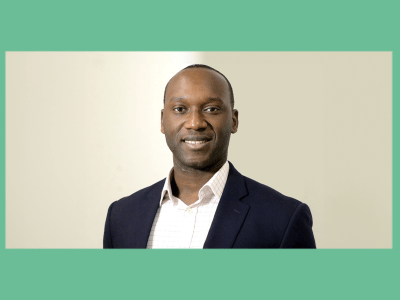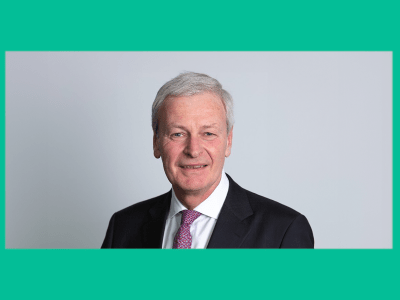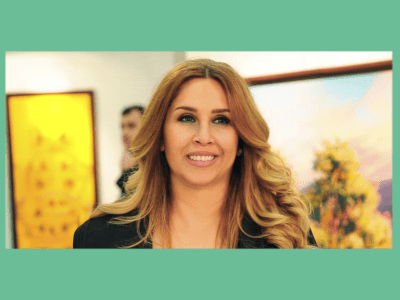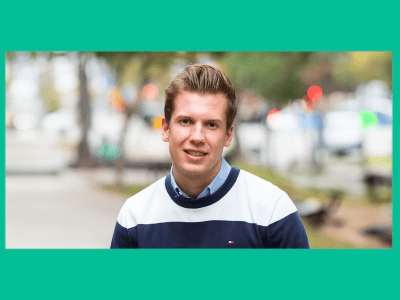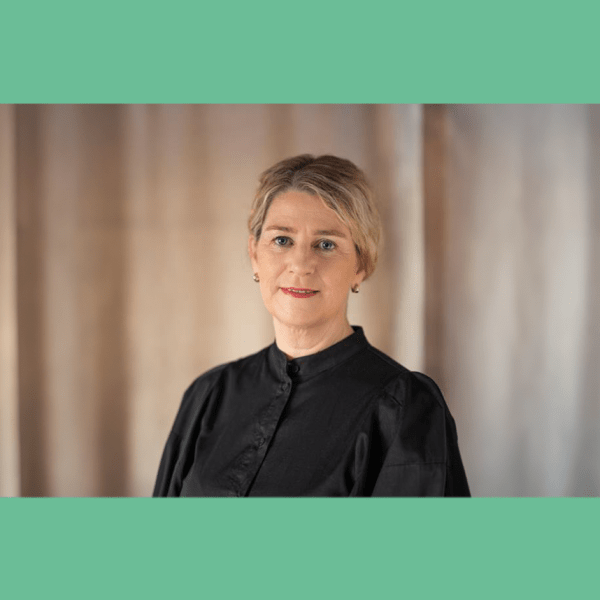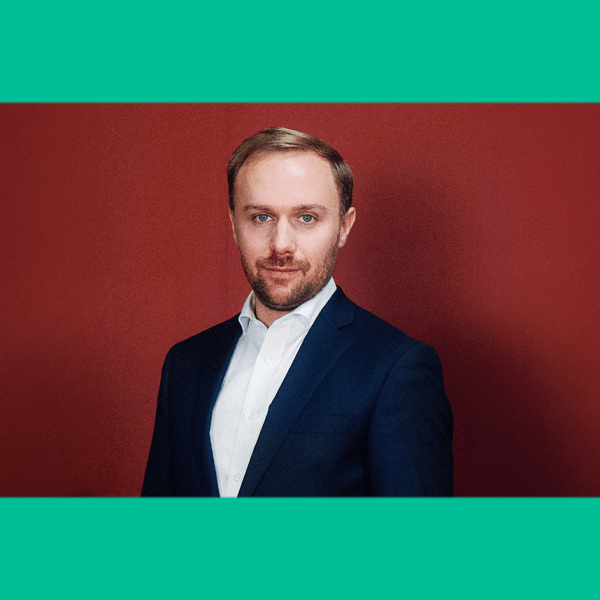“Had I not had the benefit of working with others, I do not believe I could have done what I have done.” – Tom Siebel, CEO of C3 AI
Formerly at Oracle, Silicon Valley legend Tom Siebel is probably best known for being the founder, chairman, and CEO of pioneering software company Siebel Systems. Siebel’s newest company, C3 AI, is a forerunner in the field of enterprise AI, and has been supporting groundbreaking COVID research throughout the pandemic.
Siebel sat down with Peter Vanham, author of “Before I Was CEO,” for an in-depth interview about AI, technology, and how his impressive skills led to forty years of success in the tech industry.


From Analog Beginnings to a Digital Future
Siebel, a native of Chicago, attended the University of Illinois Urbana-Champaign and obtained a bachelor’s degree in history and a master’s in business administration. Although he did not initially seek to make his career in technology, an encounter with Harvard sociologist Daniel’s Bell’s seminal 1973 work “The Coming of Post-Industrial Society: A Venture in Social Forecasting” irrevocably changed his life path. In his book, Bell predicted the global economy would shift from being goods-based to information-based, and that data would revolutionize everything about how people live and work. Siebel found this idea both fascinating and motivating, and decided to apply for a graduate program in computer science. This decision eventually led to an executive position at Oracle, one of the biggest and most influential tech firms.
Siebel has demonstrated extraordinary prescience throughout his career. In 1993, he founded Siebel Systems, which created the category now known as Customer Relationship Management (CRM). At the time, there was no market for or common understanding of CRM; however, Tom knew that this would change as the tech industry grew. And he was correct—the tech sector went from what Siebel estimates was a roughly 100-million-dollar industry to a 60-billion-dollar industry after the ‘90s boom. He sees the same pattern happening with enterprise AI.
When asked if his strong work ethic or entering the industry at the right time drove his success, Siebel indicated that it was a combination of both, but that opportunity did play a role in his ascension. “When you’re in the right place at the right time—and some of you will be there, and you will know it—things will feel a little bit magical, and maybe surreal… and when that happens to you, you gotta not goof it up.”
Predictive AI: Using Technology to Solve Problems Before They Happen
Siebel identified the most significant technological advances thus far in the 21st century as being elastic cloud computing, big data, and the Internet of things. These three innovations have converged to make predictive analytics possible. Predictive analytics uses techniques such as data mining, machine learning, and modeling to examine current data and make predictions about unknown future events, often solving problems before they are conceived. When predictive analytics is applied to commercial and industrial processes, it is called enterprise AI. “We have this phenomenon called digital transformation, which is taking place at an accelerating pace on a global scale. And that is where we play—in the application of AI to business, commercial, and industrial processes.”
Siebel then used Enel, one of the largest utility companies in the world, as a model for how effective predictive analytics can be. Using smart grid analytics to drive resource distribution management, Enel employs predictive analytics not just to foresee and prevent future problems, but also for maintenance. The specific example Siebel used was a power transformer in Rome that would have otherwise failed and caused an outage. With predictive AI maintenance, the problem would have been anticipated and the contributing factors eliminated before the outage occurred. While this sounds simply like a quality-of-life improvement, Siebel points out it has serious social and economic benefits—Enel and its customers have saved more than 6 billion Euros since these measures were implemented.
The Grand Challenge
Perhaps the most unique and altruistic application of AI in the world, “The COVID-19 Grand Challenge” was Siebel’s and C3 AI’s constructive response to COVID-19.
When lockdown began, C3 AI closed all their physical offices worldwide. They aggregated all published data on the disease, including public data stores available from top medical institutions such as Johns Hopkins and the WHO, and use the C3 AI platform to unify all this data into a single image; a data lake. This data lake highlighted all known connecting factors about COVID, including treatments and responses, comorbidity, and social intervention efficacy. This allowed researchers to find connections and draw relevant conclusions more easily.
Next, they published the “C3 AI COVID-19 Data Lake” in conjunction with Amazon Web Services (AWS) and made it available to researchers, students, and institutions worldwide. C3 AI then issued their “Grand Challenge,” a call for interested parties to use the C3 AI COVID-19 Data Lake to develop machine learning models to assist with COVID research. Currently, 26 of these projects have been published and made available to the public. Siebel said that he appreciated the “intellectual challenge” of his company’s proactive COVID response. “It’s been a great learning experience, and it’s been extraordinarily rewarding.”
When asked how this collected knowledge used in the C3 AI COVID-19 Grand Challenge could have changed how COVID was handled, Siebel said he believed it would have created a better-informed response, particularly at the government level. “All of our politicians like to claim that their decisions were science-based, but… many of these have been political decisions. So, I think we can provide the data to these decision-makers so they can make better policy decisions, and so we can get through this with minimal impact.”
Interested parties can view more information about the C3 AI COVID-19 Grand Challenge project here.
AI: Future Benefits, Future Concerns
Siebel identified sustainability as one of the primary functions of enterprise AI in the future, citing C3 AI’s work with Shell Oil as an example of the power of this technology. Through C3 AI’s Digital Transformation Institute,, Shell is making revolutionary strides towards a 2050 zero-emissions goal. Currently, the company is working with all aspects of Shell’s businesses process to digitally transform them into a renewable energy company.
Siebel also predicts that the most prominent commercial area of AI will be in the health sector, using data aggregation to create the same kind of model as the C3 AI COVID-19 Data Lake. He highlighted the significance and effects of telemedicine, as it permits healthcare professionals to reach disadvantaged sectors more efficiently. When asked by a student whether he saw human jobs being phased out by AI replacements in the future, Siebel had a more positive outlook: “If we look at the impact of technology on human society over time…these were all disruptive technologies that forced many people out of jobs. So, you will displace jobs, but like moveable type or the loom, it will create orders of magnitude more jobs than it displaces.”
Advice for Future Disruptors
Siebel is very clear about his goals and aims in the tech industry. He prefers to focus on solving real problems and want to “have a good time” by surrounding himself with talented people who share a common purpose. One thing he stresses is the importance of a strong work ethic and high output management. He doesn’t feel that the “work-life balance” is a goal, saying at C3 AI he prefers to hire those who “see work and life as the same thing,” adding that those who don’t feel that way are free to look at companies with a more relaxed corporate culture. Citing figures such as Steve Jobs, Siebel said, “I would like to believe that I am a good person and father, but I really like to work… if you want to be that person, you will make sacrifices.” He then recommended the book High Output Management by former Intel CEO Andrew Grove as a guide.
Siebel is also clear that, however, that the leadership skills and structures familiar to Boomers are not of much use in the 21st-century workplace. Their primary focus, according to Siebel, was compensation, and most workers shared a similar history, culture, and set of goals. However, in the global workplace of the 21st century, leadership is best done through example and finding commonalities amongst a diverse group of workers.
In response to a student question about the high failure rate of startups, Siebel admitted his own first company would have failed had he started it before gaining the necessary work experience. “People who leave school and start companies make rookie errors. I would strongly recommend you work for a company first.” Again, Siebel stressed the importance of being able to cooperate with others.
His parting words were to encourage everyone to “have a book in your hand” and to “make a difference,” recommending The Master Algorithm by Pedro Domingos as an excellent resource for anyone interested in AI. Siebel then ended his interview by giving the EU audience his email address, encouraging them to send their resumes directly to him. We can only hope that some members of our community take him up on this very generous offer.
At EU Business School, we offer a broad range of foundation, bachelor’s, master’s and MBA programs that have been specifically designed to respond to the latest demands of industry. From cloud computing to digital design and from innovation and entrepreneurship to business technology, we ensure that you will graduate with the skill set to excel in the workplace of the future. Join our international community and prepare yourself with the knowledge and entrepreneurial mindset you will need to make an impact on the world and achieve professional success.



